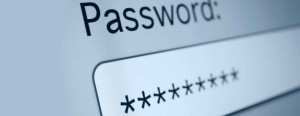 You may guess it’s the password to your online bank account, to Facebook or to a shopping site. Those are all important but there’s one that it’s critical you share with a loved one. It’s the password to your email account.
You may guess it’s the password to your online bank account, to Facebook or to a shopping site. Those are all important but there’s one that it’s critical you share with a loved one. It’s the password to your email account.
Why is this so important? When you die, your loved one or executor will try to access all of your online accounts so that they can close them down or, if necessary, continue their use. For example, they may want to shut down your account on Amazon since you won’t be doing any more shopping. Or, if you pay your utility bills online, they may want to continue to pay them until they sell your home.
You may use the same login information and password for all of your accounts but chances are that you have several different ones. However, most of the accounts have a system that will enable a user to recover a forgotten login or password. The user just needs to know how to access the email account linked to that other site so he or she can recover the information when it is sent out.
Although it is not strictly legal for you to share your password and login information, it is the easiest way to ensure that when you’re gone, your executor will be able to easily access your information and settle your estate.
For more information about digital estates and the steps you should take to be sure you have included them in your planning process, check out our book “Access Denied ” or go to our site www.diesmart.com.
